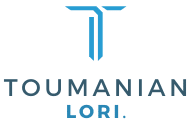How to Navigate Intellectual Property Rights When Starting a UK Tech Company?

Understanding and effectively navigating intellectual property rights is crucial for the success of any tech company. It is even more significant when starting a tech company in the UK, where intellectual property rights are stringently enforced. Here, we’ll delve into how you can protect your company’s property, design, and products, using legal applications and strategies like patents, trademarks, and copyright.
Understanding Intellectual Property
Before embarking on the journey to protect your company’s intellectual property, it’s essential to grasp what it entails. Intellectual property refers to creations of the mind, such as inventions; literary and artistic works; designs; and symbols, names, and images used in commerce.
Also read : How Can Small UK Businesses Tap into the Electric Vehicle Charging Station Market?
When you run a tech company, your intellectual property can include your products, software, services, and your branding. These are assets that differentiate your business from others, and thus, they provide your company with a competitive edge.
Intellectual property rights are legal rights that provide creators protection for their innovations, ideas, and creations. In the context of a UK tech company, these could refer to patents for your unique technology, copyrights for your software code and product designs, and trademarks that protect your brand’s identity.
Also to discover : What Are the Unique Marketing Strategies for UK Craft Beer Breweries Online?
Implementing a Patent Strategy
When you develop a unique product, design, or process in your tech company, a patent provides you with the exclusive rights to use and profit from it. Patents can protect your product from being manufactured, used, or sold by others without your consent.
The first step in obtaining a patent is to file an application with the UK Intellectual Property Office. This will involve a detailed description of your invention, including how it works, what it does, how it does it, what it’s made of, and how it’s made.
It’s important to note that not all inventions can be patented. The innovation must be something that can be made or used, it must be new, and it must be inventive or not obvious to someone in the field.
Once the patent is granted, it will provide your company with protection for a period of up to 20 years. However, enforcing a patent can be a complex and costly process, and it’s best to seek legal advice before proceeding.
Copyright Protection for Your Software and Design
In the digital world, copyright is a crucial form of intellectual property protection. It provides the creators of literary and artistic works with the exclusive right to use and distribute their work.
For a tech company, this means your software code and product designs are automatically protected under UK law from the moment they are created. This gives you the exclusive right to control where and how your work is used and enables you to take legal action against anyone who uses it without your permission.
Although copyright protection is automatic, it can be advantageous to register your copyright. Registration provides a public record of your copyright and can be used in court as evidence of ownership.
Utilising Trademarks for Brand Protection
Trademarks are another vital aspect of intellectual property protection. They protect names, logos, and designs that identify and distinguish your tech company from others in the market. When you register a trademark, you are granted exclusive rights to use it in relation to your products or services.
Trademark registration in the UK is handled by the Intellectual Property Office. To register a trademark, you must ensure that it is unique and not similar to any existing trademarks. Once registered, a trademark provides protection in the UK for 10 years and can be renewed indefinitely.
Developing an Intellectual Property Strategy
To protect and maximize the value of your intellectual property, developing a comprehensive intellectual property strategy is crucial. This involves identifying your intellectual property assets, assessing their value, determining the best form of protection, and continuously monitoring and enforcing your rights.
Your intellectual property strategy should be integrated with your overall business plan. This will help ensure that your intellectual property assets are aligned with your company’s goals and objectives.
Legal advice can be invaluable when developing your strategy. A lawyer with expertise in intellectual property law can guide you through the nuances of patents, trademarks, and copyright, and help you navigate the complexities of UK law.
In conclusion, understanding and effectively managing your intellectual property rights is essential for the sustainability and growth of your tech company. It enables you to protect your innovations, assert your rights, and drive your company’s success in the competitive tech industry.
Exploring Other Intellectual Property Rights
Apart from patents, copyrights, and trademarks, there are other intellectual property rights that you may need to consider for your UK tech company. These include design rights and trade secrets.
Design rights protect the outward appearance of a product, including its shape, configuration, and ornamentation. If your tech company is involved in creating innovative designs, this is an important right to consider. In the UK, unregistered design rights automatically protect your design for 10 years after it was first sold or 15 years after it was created – whichever is earliest. However, for more robust protection, you can register a design with the UK Intellectual Property Office, which will protect it for up to 25 years.
Trade secrets, on the other hand, are confidential pieces of information that give your company a competitive advantage. These can include technical knowledge, formulas, processes, and business strategies. Trade secrets are not registered with the Intellectual Property Office and are protected by keeping them confidential. If a trade secret is breached by an employee or another party, you can take legal action to prevent further disclosures and claim damages.
To ensure the thorough protection of your intellectual property, consider consulting with a patent attorney or a firm like Lawdit Solicitors that specializes in intellectual property law. They can provide guidance on the different types of protection available and help you with the application processes involved.
Ensuring Proper Business Insurance
Starting a tech company comes with its fair share of risks, and intellectual property infringement is one of them. To protect your company from the financial consequences of such incidents, it’s wise to consider business insurance.
Specific insurance policies cater to the needs of tech companies. For instance, professional indemnity insurance can cover legal costs if a third party claims that your company has infringed on their intellectual property rights.
Additionally, your company may also benefit from intellectual property insurance. This type of insurance can cover the costs associated with defending an intellectual property claim, as well as any damages or settlements that you may be required to pay.
Bear in mind that the right insurance coverage can provide a safety net for your business, but it does not replace the need for an effective intellectual property strategy. Proactively protecting your intellectual property through patents, trademarks, copyright registration, design rights, and keeping trade secrets confidential is still crucial.
Conclusion: Safeguarding Your Tech Company’s Future
Navigating the intellectual property rights landscape may seem daunting when starting a UK tech company. Still, it’s an essential step in safeguarding your innovations, asserting your rights, and driving your company’s success.
By understanding the different types of intellectual property – from patents to trademarks, copyrights, design rights, and trade secrets – you can develop a robust strategy to protect your assets. Remember to consult with a patent attorney or an expert like Lawdit Solicitors to ensure your company’s intellectual property is thoroughly protected. Also, consider incorporating the appropriate business insurance into your plan for added security.
Keeping a vigilant eye on your intellectual property rights not only shields your tech company from potential legal action but also strengthens your company’s position in the competitive tech industry. In the end, protecting intellectual property is not merely about safeguarding what’s yours – it’s about creating a strong foundation for your tech company’s growth and success.
